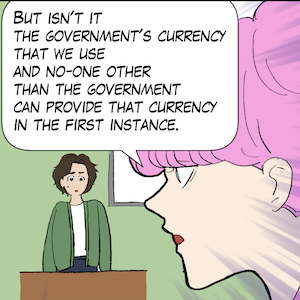Over time we observe a pattern of idiocy in the financial press, where different fictions, dressed up as allegedly shattering propensities, are regularly cycled through in succession, each one getting headlines for a day or so, only to be replaced by the next sensationalised issue. So-called experts or corporate bosses are wheeled out and make horrendous predictions that one country or another is entering a catastrophe of its own making – too much government spending, too much debt, or some other policy position – is usually fingered as the culprit. None of the predictions ever come to pass and the media never follow up to reflect on why. They are too busy pushing out the next headline and the next issue, which, in turn, will be replaced by something else, and then something else, and so on, until the initial prophesy of dooms is recycled, despite failing dismally to engage with the real world when it was last aired. And this pattern has unfolded over decades. Who ever checks the veracity of the predictions? How does the reputation of these so-called experts survive continual failure? The problem is that most of us believe this fiction and elect politicians and accept poor economic policy based on the fictional world we live in. Anyway, I have a prediction … read on.




